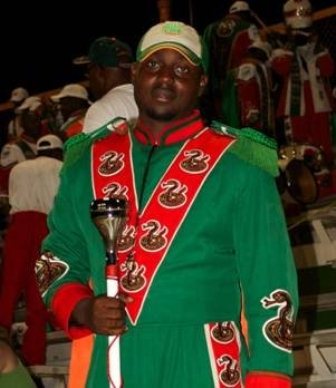 |
(CNN) -- The Florida A&M Board of Trustees issued a vote of no confidence against the university's president Thursday in the wake of last year's hazing death of a school band member.
President James Ammons acknowledged the board's feelings after the 8-4 vote.
"I hear you loudly and clearly," Ammons said. "I understand there are measures I have to take, as president of the university, to fix things. And I will fix them."
The vote followed a series of investigations into the university amid concerns over the November death of drum major Robert Champion. The vote was also related to financial audits that resulted from the investigation.
Champion's family said they agreed with the vote.
"They have no confidence in Dr. Ammons' ability to effectively manage this hazing crisis," the family said in a statement released by their spokesman, Ryan Julison.
Champion, 26, died after the initiation ritual aboard a bus, of what the Orange County medical examiner said was "hemorrhagic shock due to soft tissue hemorrhage, due to blunt force trauma."
The medical examiner ruled the death a homicide, prompting a police investigation and renewed public scrutiny of hazing in the university's famed Marching 100 marching band, which got its name in 1950 and actually has about 400 members.
Four students were expelled from the school and another 30 were dismissed from the band soon after Champion's death.
The police investigation resulted in charges against 14 people. Eleven face one count of third-degree felony hazing resulting in death. Each also is accused of two counts of first-degree misdemeanor hazing.
State law provides a prison term of up to six years for those facing the more serious charges.
Three people each face a single count of misdemeanor first-degree hazing. Sentences in such cases typically call for up to a year in jail.
FAMU said it took steps to eradicate the problem of hazing after Champion's death, and the board of trustees approved an anti-hazing plan that includes an independent panel of experts to investigate hazing allegations.
The band has been suspended since Champion's death and Ammons said last month it will stay inactive through the upcoming school year. The band's long-time director, Julian White, retired earlier this month.
There are more than 2,000 pages of police interviews with witnesses and defendants who were aboard the bus on the day of Champion's death.
Multiple witnesses say Champion was forced to walk, shirtless, from the front of the darkened bus to the back while being beaten with drumsticks, bass drum mallets, punches and kicks.
"You get beaten until you get to the back," one band member said on the condition of anonymity.
Drum major Keon Hollis told investigators he went through the same ritual just ahead of Champion and that they did it to gain respect.
Hollis said they had to fight their way through a fury of punches and slaps, while other band members swung with sticks and straps.
"(Robert) really didn't want to do it, but he was kind of like, 'I'm just going to do it,' " Hollis said. "You know, I told him, I said, 'if you don't want to do it, don't do it.' "
Champion's parents say their son was against hazing and would not have participated willingly.
The Marching 100 is one of the top university marching bands in the United States, famed for its elaborate dance formations and innovative style incorporating popular music.




















































































































































































































































































































